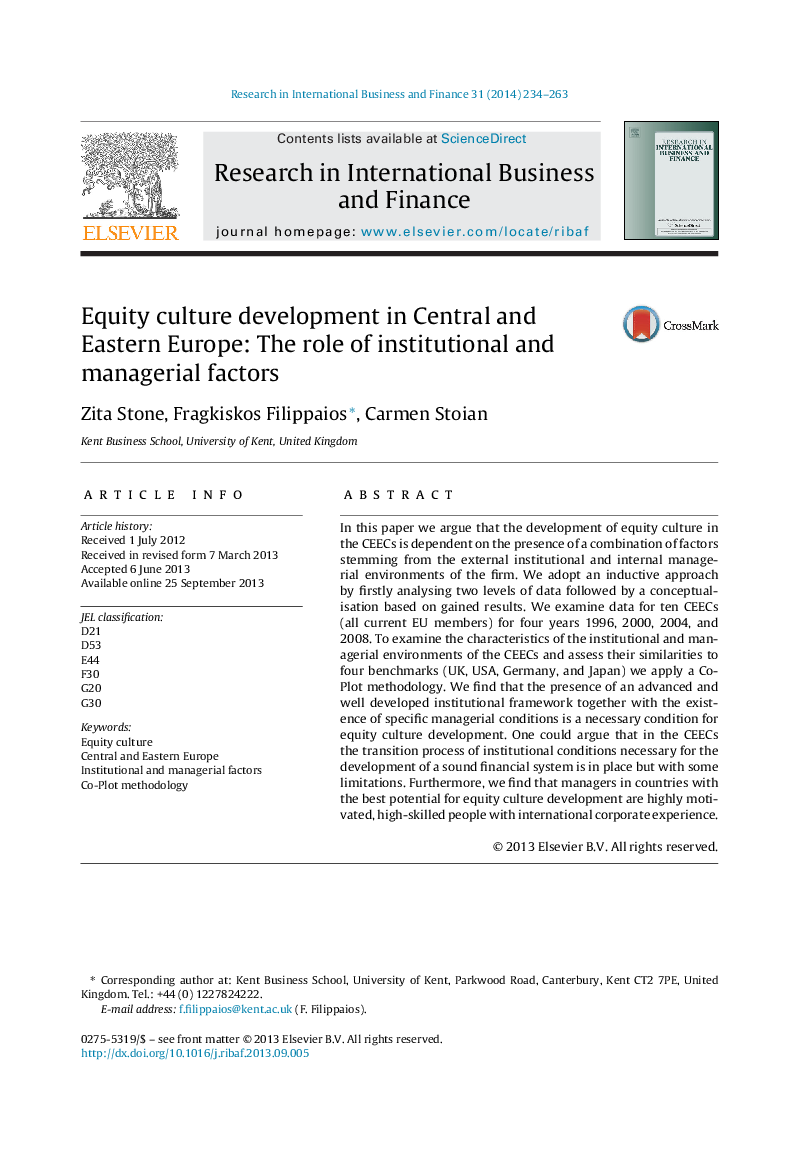| Article ID | Journal | Published Year | Pages | File Type |
|---|---|---|---|---|
| 1003148 | Research in International Business and Finance | 2014 | 30 Pages |
In this paper we argue that the development of equity culture in the CEECs is dependent on the presence of a combination of factors stemming from the external institutional and internal managerial environments of the firm. We adopt an inductive approach by firstly analysing two levels of data followed by a conceptualisation based on gained results. We examine data for ten CEECs (all current EU members) for four years 1996, 2000, 2004, and 2008. To examine the characteristics of the institutional and managerial environments of the CEECs and assess their similarities to four benchmarks (UK, USA, Germany, and Japan) we apply a Co-Plot methodology. We find that the presence of an advanced and well developed institutional framework together with the existence of specific managerial conditions is a necessary condition for equity culture development. One could argue that in the CEECs the transition process of institutional conditions necessary for the development of a sound financial system is in place but with some limitations. Furthermore, we find that managers in countries with the best potential for equity culture development are highly motivated, high-skilled people with international corporate experience.
